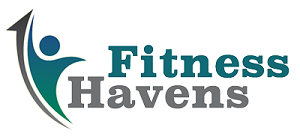Lifestyle diseases are ailments, which occur due to your way of living. These include obesity, type 2 diabetes, atherosclerosis, stroke, and heart diseases. Along with adults, many children also suffer from lifestyle disorders. Lack of physical activities, stressful living, and availability of technological resources are the main reasons for such ailments.
Diet and exercise tips to follow
Today, most people live sedentary lifestyles and sit at their desks for several hours a day. Ideally, you must be physically active and sit only while resting. Sitting continuously in front of your laptop, television, or while driving affects the body in many ways, like:
- Weight gain, as you burn lesser calories
- Hormonal imbalances
- Loss of muscle strength and bone weakening
- Inflammation
- Weakened immunity
- Lower blood circulation
Here are some tips to reduce the risk of lifestyle-related diseases:
- Remain active
- Walk around every hour and during lunch and other breaks
- Take the stairs instead of the elevator
- Exercise regularly
- Include low-intensity cardiovascular training
- Take up a sport
- Do yoga and meditation to relieve stress and anxiety
- Make dietary changes
- Eat nutritious and well-balanced meals comprising natural fats and proteins
- Avoid sugar-laden foods like sodas, candies, and pastries
- Eliminate fried and processed foods from your diet
- Drink adequate water to remain hydrated
Treatment costs for critical illness
The treatment expenses for critical illness are on the rise due to inflation. Open heart surgery or organ transplant may cost between INR 5 lakh to INR 10 lakh. Cancer treatment may cost in the range of INR 10 lakh to INR 15 lakh. Heart diseases may require INR lakh 3 to INR 5 lakh for treatment. Have you considered how you will meet these expenses in case of a diagnosis of any illness? A critical illness insurance policy is beneficial to combat these expenses.
This insurance plan pays a lump sum if you are diagnosed with any covered ailment. You can utilize the money that you receive from this type of health insurance plan for treatment, household expenses, repaying debt, or any other purpose.
Before you opt for health coverage, here are a few things to consider:
- You need to survive for an approximate period of 30 days from the date of diagnosis; this duration may increase or decrease depending on the kind of illness; in case of demise during this tenure, you do not get any cashless health insurance benefits
- You must know about the waiting period for pre-existing conditions; it may be up to four years, and you need to find the lowest one to ensure the availability of benefits at the earliest
- You must compare different health insurance like cholesterol medical cover and Covid-19 insurance from different insurers to find a plan that includes the highest number of critical ailments
- You must inquire about the additional facilities, such as waiver of premiums, hospital cash, and a second e-opinion of a medical practitioner with the same medical insurance plan
A critical illness plan is a fixed benefit policy and does not cover hospitalization expenses. It pays a fixed amount on a positive diagnosis after the end of the survival period. To cover hospitalization-related expenses, you may buy a mediclaim policy for additional security.





